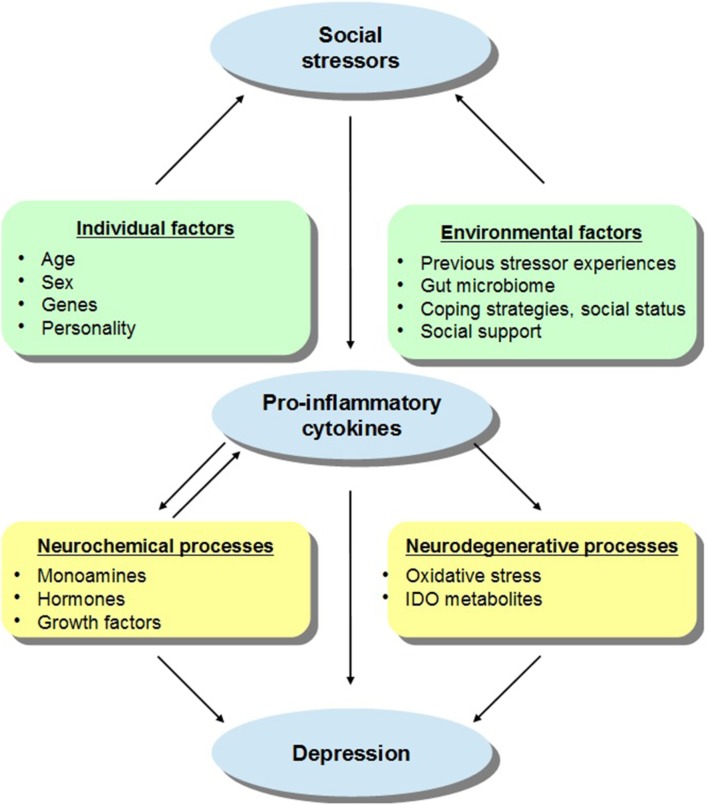Figure 1.
A schematic representation of the relations between social stressors, pro-inflammatory cytokines, and depressive states, with a particular focus on the individual and environmental factors that may moderate these effects. It is suggested that in addition to sex and age, the capacity of social stressors to promote inflammatory variations that might lead to depression may be influenced by the presence of genetic and personality factors. For instance, individuals carrying specific gene combinations or polymorphisms (e.g., variants of IL-6, IL-1β, TNF-α) may be more vulnerable to the depressive effects of inflammatory activation provided that they also encounter social stressors. In addition, it is proposed that environmental factors may also impact on stress-related cytokine responses and thus on depressive symptoms. For example, previous stressor experiences in the form of prenatal or early-life adversity or immunological challenges as well as gut bacterial disturbances may influence inflammatory processes and sensitize immune responses to subsequent stressors, thus favoring the emergence of depressive symptoms. However, in the context of adequate coping strategies, higher social status, or in the presence of effective social support, the cytokine effects of stressors may be limited thus buffering against mood disturbances. The activation of pro-inflammatory processes may directly or indirectly influence depressive states. Elevations of cytokines may influence monoamine (e.g., 5-HT, NE), hormone (e.g., CRH), and growth factor (e.g., BDNF) activity which might favor the evolution of depression (and basal hormonal and neurochemical functioning may impact cytokine processes). Alternatively, cytokine variations may stimulate the enzyme indoleamine 2,3-dioxygenase (IDO) and promote the release of neurotoxic metabolites, including kynurenic acid, quinolinic acid, or 3-hydroxykynurenine, and cause oxidative stress, culminating in depression.

